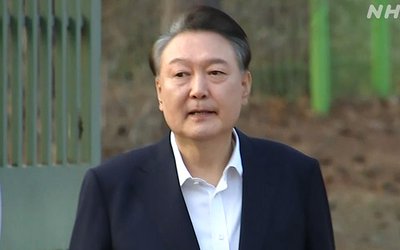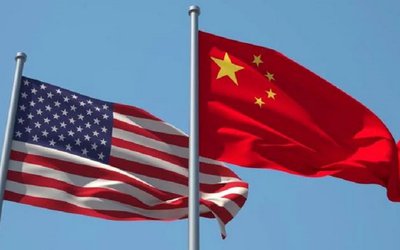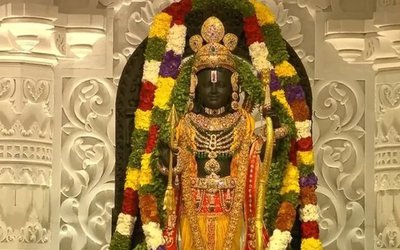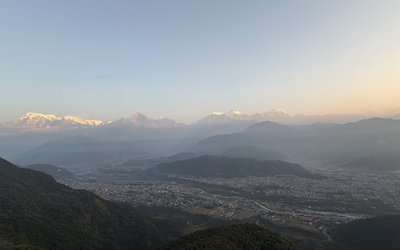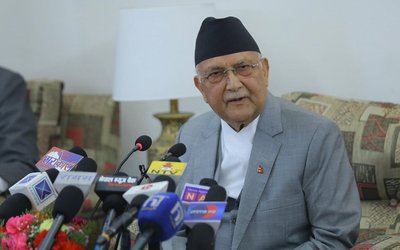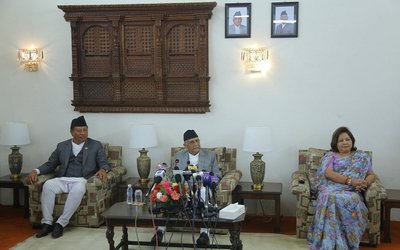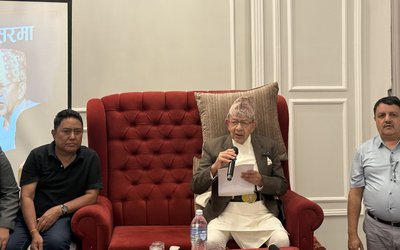The prestigious Delhi University (DU) saw unprecedented series of events in the past two weeks. Clashes between the the Akhil Bharatiya Vidyarthi Parishad (ABVP), the student wing of the ruling Bharatiya Janata Party (BJP) and left-wing student groups slowly turned into a nation-wide debate on nationalism and tolerance. In an event that saw noted celebrities, writers, sportspersons and intellectuals being polarized into two sides, the DU fiasco gave the nation a grim reminder of a similar incident that took place in Jawaharlal Nehru University (JNU) last year and events that ensued after it. It, once again, put the spot light on issues like freedom of speech, dissent and ‘sedition’.
Violence first erupted over an invitation to Umar Khalid, the JNU student who was arrested on sedition charges last year, for a discussion held by one of the departments ofDU affiliatedRamjas College. Members of ABVP obstructed Khalid’s entry into the University and when students and teachers stood up to this, they were physically assaulted. What ensued was a chaotic confrontation with many students blaming the police for being mere spectators and not taking action against ABVP members.
My intention here is not to argue who is right or wrong. But whatever the reasons for the confrontation, a University cannot be a place to showcase hooliganism and silence dissident voices. Conflicting voices are meant to be expressed through intellectual debates and discussions. This is the foundation of prestigious Universities of the West. Educational institutes in the US, UK, Australia and the likes are lauded for encouraging their students to hold opinions of their own. They are encouraged to debate and settle issues through discussions. In contrast, educational institutes in the East – including in Nepal have historically relied on traditional approach. Teaching is normally a one way process and critical thinking is very much absent in the students. Instead, Universities become hot beds of political activity.
While still relying on traditional approach on many fronts, as an alumni of DU, I believe that the DU of the present day has embraced many values practiced in reputed Western Universities. This is a stark change from previous years. It is also a positive sign that students are being taught to have an opinion of their own and to voice in their disagreement. But when activities such as the recent one happen, it will only backtrack the achievement the University has made on this front. Already, there are reports that teachers fear teaching freely in the classes and students fear repercussions if in case they voice their opinion. Heavy police presence in campuses of DU has created an environment of fear and panic.
What added fuel to the fire in the DU fiasco was BJP’s support to it’s student wing. Such political meddling should be kept strictly out of Universities. If that is not done, it will only result in the over-politicization of educational institutes and directly hampering the students’ studies. Students have the option of adhering to conflicting views – be it the ‘left’ or the ‘right’. But no one has the authority to bull doze one’s views on others. Resentment to opposing views will only lead to the discouragement of the critical thinking mass in the future.
- Ukrainian Crisis And The World (Dis)Order
- Apr 22, 2022
- China’s Cautious Steps In The Graveyard Of Empires
- Aug 18, 2021
- Foreign Aid On The Fence!
- Aug 08, 2021
- Communist Party of China centenary celebrations Reading between the lips
- Jul 14, 2021
- Second Wave Of Covid-19 In India: Deadly Blow To The Economy
- Jun 23, 2021


